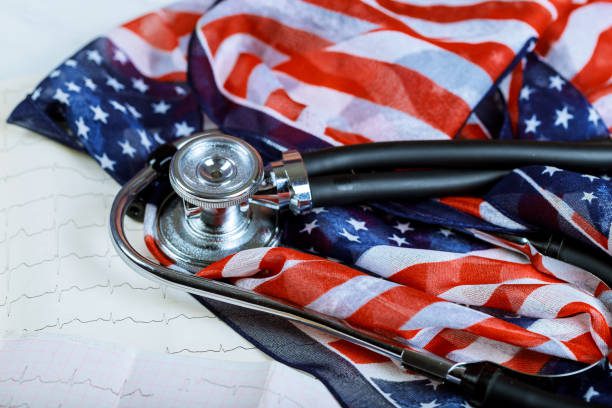Freedom From Want – National Health Law Program
The Declaration of Independence celebrated three “unalienable rights” on which our fledgling democracy would be built: the rights to life, liberty, and the pursuit of happiness. At the anniversary of the signing of the Declaration, it is worth asking whether we still consider those rights to be the foundation of our democracy and, if so, what we mean by them.
In 1941, President Franklin D. Roosevelt taught us that “[t]here is nothing mysterious about the foundations of a healthy democracy.” Giving more substance to our “unalienable rights,” he outlined four essential freedoms: freedom of speech and expression, freedom of worship, freedom from want, and freedom from fear. By 1944, with the end of the war in sight and our country and others trying to prevent a repeat of Nazi tyranny, Roosevelt returned to these freedoms. He emphasized the importance of economic security to a healthy democracy: “People who are hungry and out of a job are the stuff of which dictatorships are made.”
We have come too close to the failure of democracy Roosevelt warned of. On January 6, 2021 we confronted a genuine possibility that our system of free elections and a peaceful transfer of executive power would fail. Extreme partisanship in Congress almost brought us to the brink of defaulting on our national debt and that is just one example of leaders sacrificing the interests of those they represent for political ends. Confidence in the integrity of our courts is at a low ebb. The right to vote is threatened in numerous places and, even where people can vote, many do not. There are vast differences in how we enjoy the “blessings of liberty”: disparities in wealth and income, disparities in health, and a terrifying disparity in learning, made worse because the other disparities have caused the pandemic’s impact to take a disproportionate toll on children of color.
There is much we need to do to protect our democracy and our children’s future. We should start by protecting the freedoms on which we were founded and of which Roosevelt eloquently reminded us. An essential element of those freedoms is the freedom from want. When basic needs are not met, and inequities are inadequately addressed, the appeal of leaders offering scapegoats to blame is high, bringing with it little understanding of the cost of following those leaders or the hollowness of their promises. In contrast, people whose basic needs are met are more likely to see the connection between lofty-sounding policies and the essentials they need. Individuals who aren’t worried about basic needs like the health of their families are more likely to participate in elections and in their communities, and to contribute to a vibrant, flourishing, just society.
The National Health Law Program (NHeLP) is fighting for the freedom from want, through our work to protect and advance health care access for low-income individuals and families. We advocate for policies and programs that prioritize robust health care access and enforce individual rights and protections in federal and state courts. Our work helps make real the promises of health care that motivate many people in the United States to participate in our democracy. In a very real sense, the work we do is protecting and strengthening our democracy. It furthers our nation’s commitment to protecting unalienable rights to life, liberty and the pursuit of happiness. Our fight is also fundamentally about justice. In a country of such enormous resources, how can we justify the fact that there are hundreds of thousands of people in our country who lack the health they need to thrive and who face the agonizing choice between going to the doctor and putting food on the table? That must change and we are working tirelessly to bring about the change.
There are challenges to confront, of course. The courts are a critical element to maintaining a healthy democracy and to our work to protect those with the least resources and political clout. We rely on the courts as a bulwark against political partisanship and are heartened by decisions that enforce the rule of law. (For a moving example, read this recent decision from Florida, rejecting the state’s ban on gender-affirming care as motivated by politics and not medicine.) We also worry about an increasing number of decisions written to justify a partisan outcome and about the damage caused by those decisions. The impact of the Supreme Court’s Dobbs decision, once again, falls disproportionately on low income people, people without the means to access this essential health care in another state. We celebrated a recent victory in Health and Hospital Corp. of Marion County v. Talevski, which will allow us to keep the courthouse doors open for Medicaid beneficiaries. But the decision included a reminder that access to court to enforce Medicaid rights is determined provision by provision in the Medicaid statute and requires skill to navigate. This is why NHeLP is committed to investing in our enforcement and litigation efforts. As much as at any time in our history, NHeLP’s litigation experience and expertise are needed.
I believe in our democracy. It has proven its resilience but we should not take that resilience for granted. With collective effort, we must address the freedom from want as an essential foundation for our country’s future. Together, we can achieve our vision of health equity, where a person’s health is not determined by their race or gender or sexual orientation or any other condition, and make it the reality for all.






